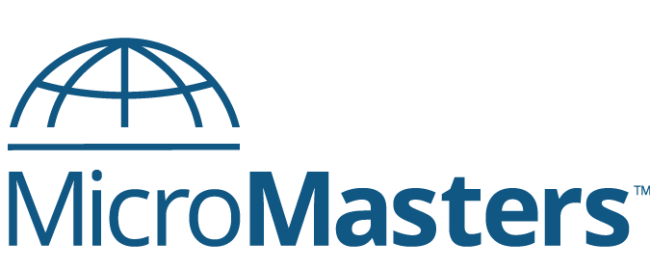You have /5 articles left.
Sign up for a free account or log in.

edX
Fourteen universities around the world are today launching modular master’s degree programs in which students can complete up to half of the course work online, earn a credential and then decide whether they want to apply to pursue the full degree.
The launch of the 19 programs, known as MicroMasters, follows a pilot at the Massachusetts Institute of Technology. MIT has since early this year tested the model in its supply chain management program. Learners start the program by taking massive open online courses hosted on edX, the MOOC platform MIT helped found. After completing five MOOCs, learners who pay a fee can either call it quits and walk away with a certificate -- or apply and, if accepted to MIT, eventually earn a master’s of engineering in logistics.
The programs launching today follow a similar blueprint. Most of them consist of four to 10 MOOCs, representing anywhere from one-quarter to half of the master’s degrees they feed into. Learners pursuing the identity-verified credential -- a prerequisite for applying to the full degree program -- will typically pay about $1,000 for it. In the MIT MicroMasters, for example, each MOOC costs $150.
While learners can take the MOOCs free, those who pay get access to some additional features. Anant Agarwal, CEO of edX, said some of the MOOC provider’s university partners were hesitant about offering credit for learners whose course work was graded by their peers. EdX will therefore filter learners who pay into separate cohorts, where their papers will be graded by instructors.
In addition to MIT’s supply chain management program, the lineup announced this morning focuses on in-demand fields such as artificial intelligence, offered by Columbia University, and user experience research and design, by the University of Michigan.
Each program also comes with a corporate endorsement. Walmart, for example, has endorsed the supply chain management program. In general, the endorsements serve as a stamp of approval from an industry partner, but Agarwal said edX is in discussions with companies about enrolling their own employees or inviting learners who complete the MicroMasters program to job interviews.
“I like to say it takes MOOCs to the next level,” Agarwal said, comparing MicroMasters programs to the stand-alone courses edX and other MOOC providers are more commonly known for.
While Agarwal stressed the pathway to credit as one of the signature features of the MicroMasters programs, it is not yet certain if the option of pursuing a master’s degree will appeal to MOOC learners. The MIT pilot, which began in February, has not yet reached the point where learners can decide if they want to apply to complete the degree.
The closest comparison may be Global Freshman Academy, an edX initiative run in partnership with Arizona State University. The initiative resembles the MicroMasters programs, but is intended for undergraduate students. The university offers a number of MOOCs on edX that learners can complete and -- if they are satisfied with their own performance -- pay to earn credit. But after the first round of MOOCs concluded late last year, only 323 of 34,086 initial registrants were eligible for credit.
The number of learners who pay to earn the credential may be one indicator. In MIT’s pilot, which to date has attracted more than 27,000 registrants, more than 3,500 are pursuing the paid credential -- about four times as many compared to a regular MOOC, Agarwal said.
Several of the universities involved in Tuesday’s launch said they don’t have any set goals for how many paying students they hope the programs will attract. James L. Hilton, vice provost for academic innovation at the University of Michigan, said it is “really hard to predict those kinds of things” since only one MicroMasters program has been piloted so far.
Michigan is launching three MicroMasters programs -- more than any of the other colleges involved -- which Hilton said reflects the university’s interest in experimenting with new forms of delivering education.
“An online education ought to be different from a face-to-face education, and this allows us to explore the interactions between both and figure out what each does best,” Hilton said in an interview. “It allows us to continue to experiment with ways to bring high-quality learning experiences to global and lifelong learners.”
Similarly, Jeremy Haefner, provost and senior vice president for academic affairs at Rochester Institute of Technology, said in an email that he expected “enrollments in the tens of thousands” but that a “smaller group” would probably opt for the paid credential and academic credit.
Agarwal said he expects other colleges will accept the MicroMasters programs as progress toward a degree. “We believe that a MicroMasters will start a new trend in academia where people will complete it and be able to find pathways to credit at a variety of universities,” he said.




